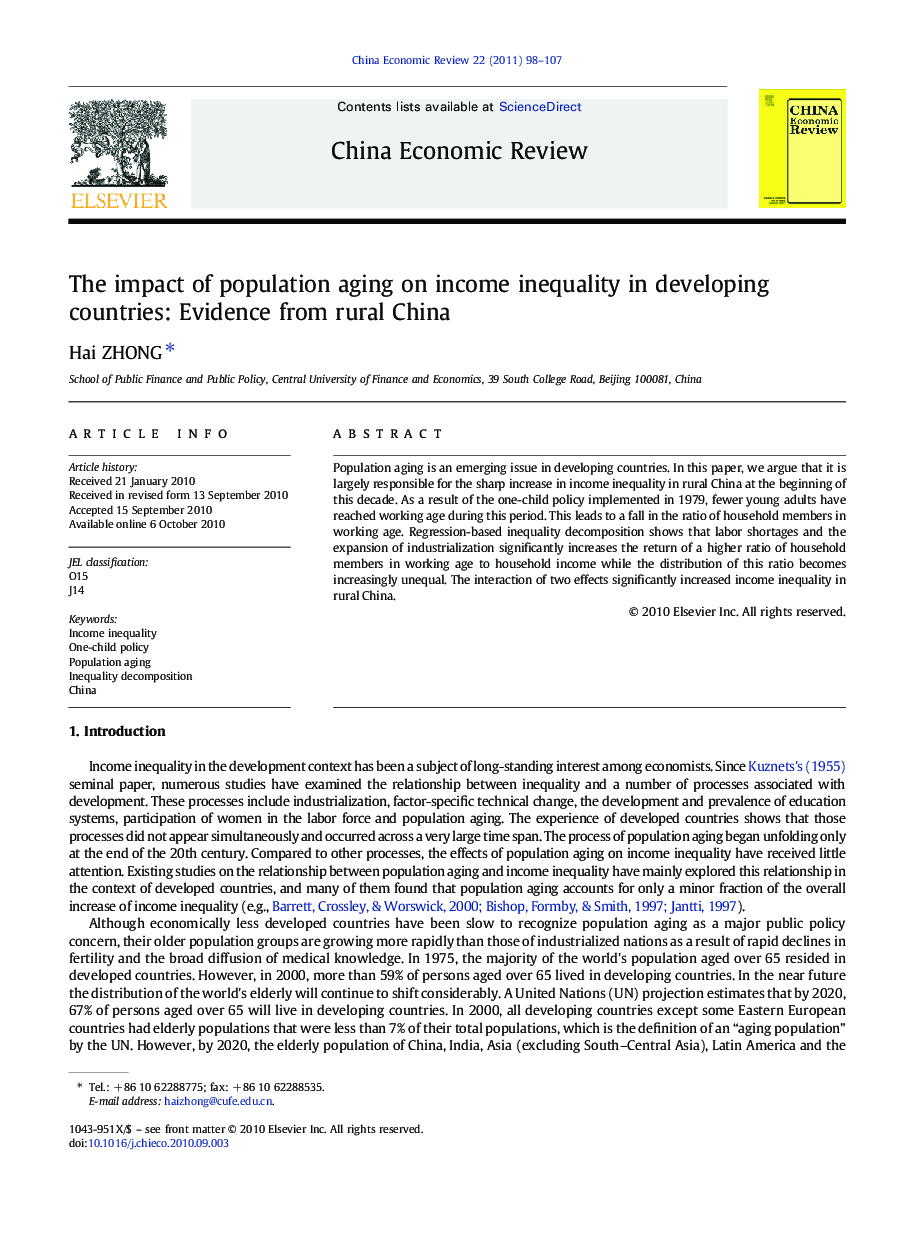| Article ID | Journal | Published Year | Pages | File Type |
|---|---|---|---|---|
| 5047895 | China Economic Review | 2011 | 10 Pages |
Population aging is an emerging issue in developing countries. In this paper, we argue that it is largely responsible for the sharp increase in income inequality in rural China at the beginning of this decade. As a result of the one-child policy implemented in 1979, fewer young adults have reached working age during this period. This leads to a fall in the ratio of household members in working age. Regression-based inequality decomposition shows that labor shortages and the expansion of industrialization significantly increases the return of a higher ratio of household members in working age to household income while the distribution of this ratio becomes increasingly unequal. The interaction of two effects significantly increased income inequality in rural China.
Research highlights⺠Population aging is an emerging issue in China. ⺠Income inequality in rural China significantly increased from 1997 to 2006. ⺠Reducing income inequality is an important policy goal for the Chinese government. ⺠Population aging is largely responsible for the sharp increase.
